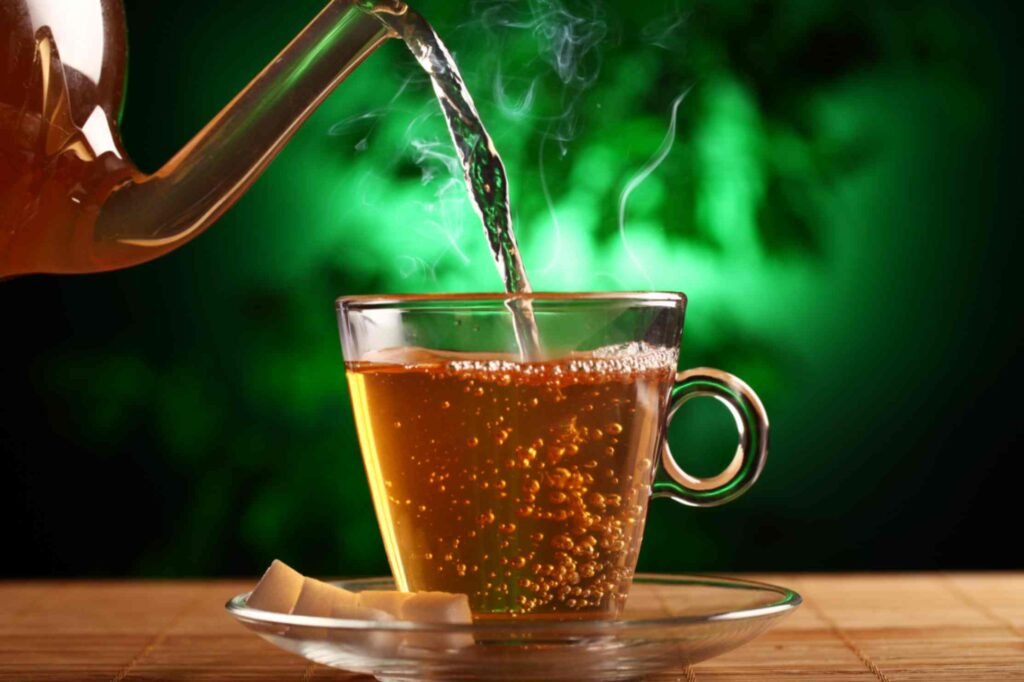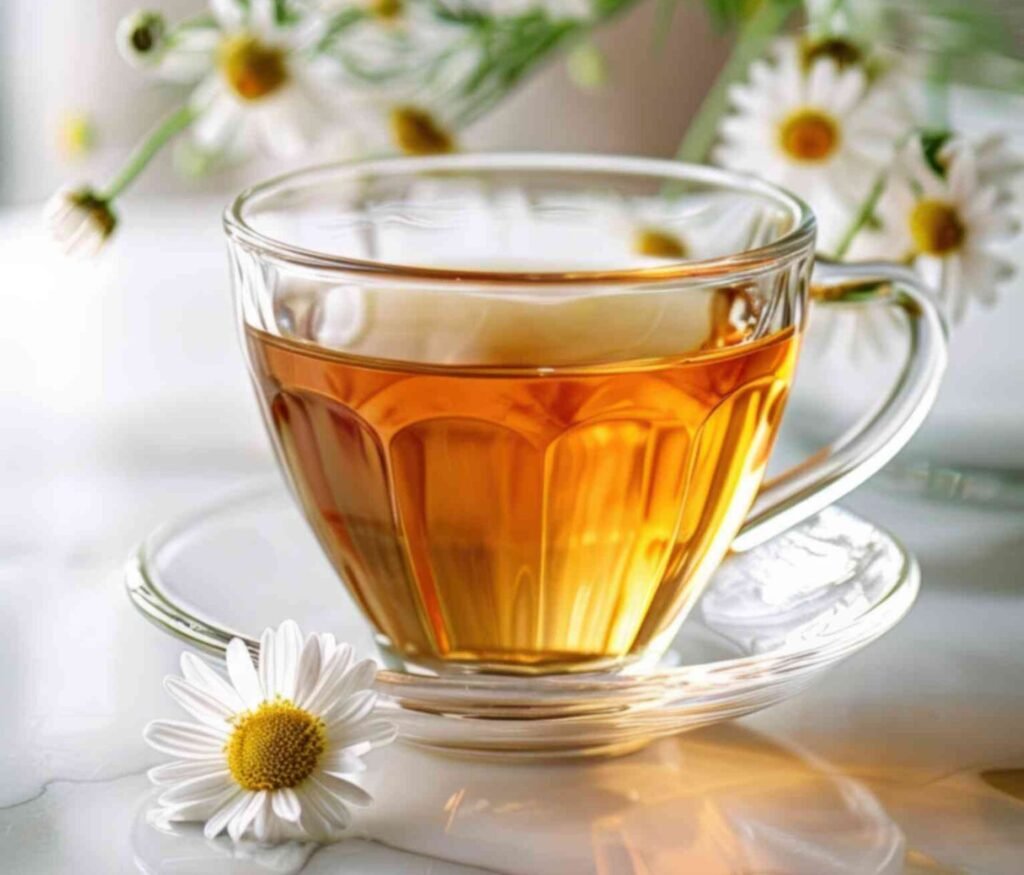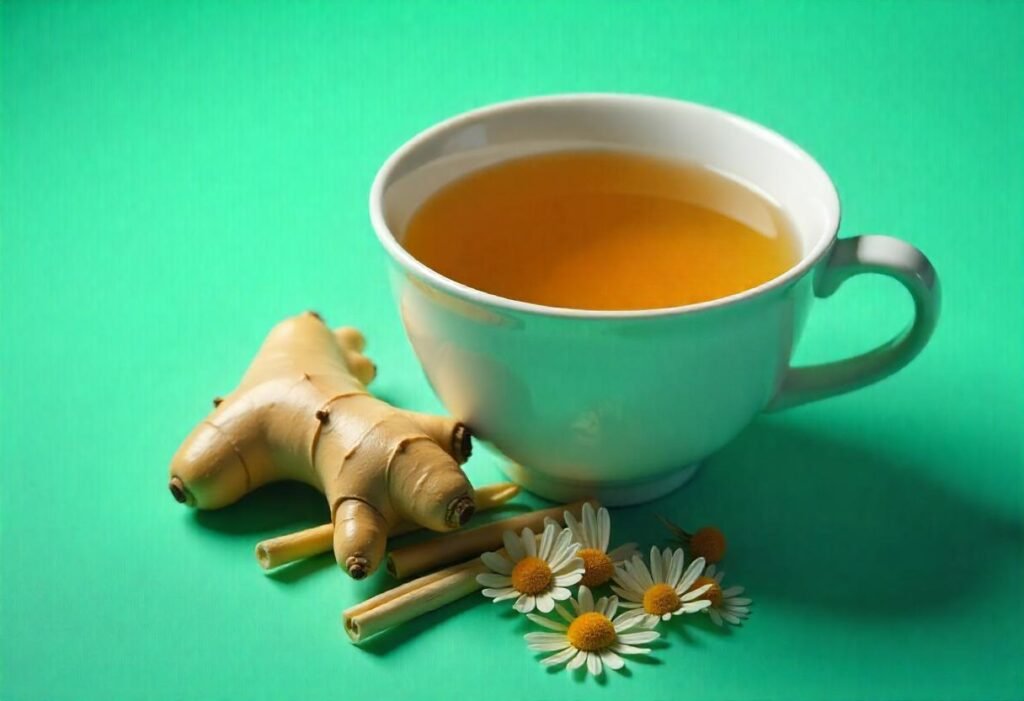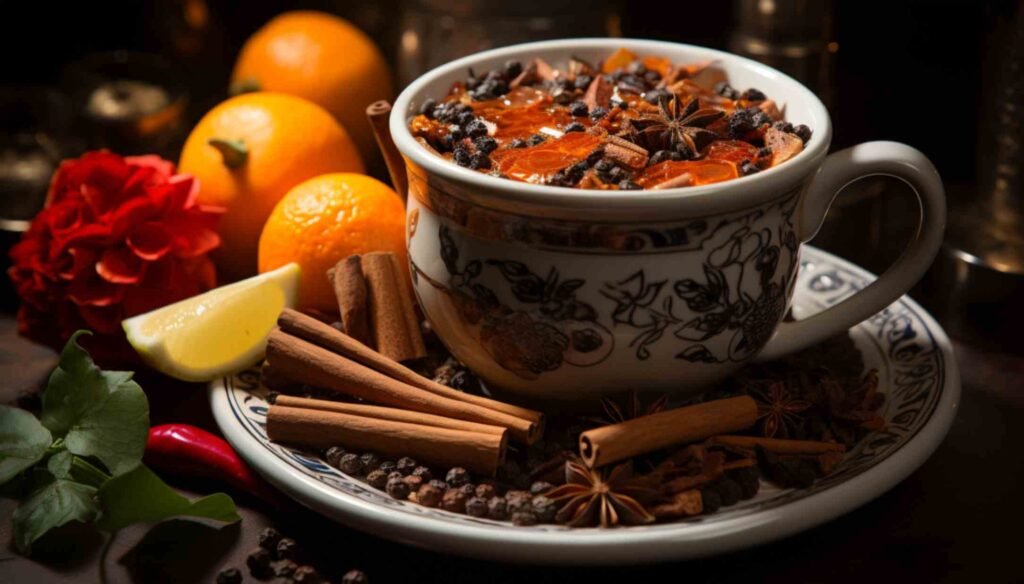
Have you been dealing with shortness of breath, seasonal allergies, or a lingering cough? These issues can affect your everyday life and energy levels. Check out our tips to boost your energy naturally alongside your detox routine, many people are turning to tea for lung health—a natural way to cleanse and support your respiratory system.
Whether you’re trying a recipe to clear lungs in 3 days or just want to make breathing easier every day, the right tea for lungs detox can make a difference.
Best Tea For Lungs – What Should You Try?
Drinking the best tea for lungs can help reduce inflammation, loosen mucus, and flush out toxins. Here are some of the top teas for supporting lung function and clearing your airways.
Mullein Tea For Lungs
Mullein tea is one of the most trusted remedies for those suffering from mucus build-up, chronic cough, or asthma. It works by thinning mucus and coating irritated membranes with its natural mucilage.
- Great tea to cleanse lungs and relieve cough
- Acts as a natural expectorant
- A top choice in better lungs detox tea
How to use: Steep dried mullein leaves in hot water for 10–15 minutes. Strain well before drinking.

Ginger Tea – Best Tea To Clear Lungs
Ginger is a powerhouse when it comes to tea for lung cleansing. It reduces inflammation, boosts immunity, and helps open airways.
- Antibacterial and antiviral properties
- Soothes sore throat and eases breathing
- Ideal tea for lungs detox
Drink ginger tea daily to support long-term respiratory health.

Thyme Tea – Herbal Tea Lung Detox Solution
Thyme contains thymol, which is known for its strong antibacterial and antifungal properties. It’s especially effective in treating bronchitis and chest congestion.
- Best tea to cleanse lungs naturally
- Helps reduce coughing and open airways
- Recommended tea for lung health

Licorice Root Tea – Natural Lung Detox Tea
With expectorant and soothing effects, licorice root tea helps remove mucus and reduce irritation in the respiratory tract.
- Excellent tea for lung cleansing
- Fights toxins and environmental pollutants
- One of the best teas for lungs detox
Drink a warm cup of licorice tea to relieve inflammation and support lung recovery.

Peppermint Tea – Refreshing Tea For Lung Health
Peppermint contains menthol, which relaxes the muscles of your respiratory tract and supports airflow.
- Clears sinus and chest congestion
- Great for asthma or allergy-related breathing issues
- A helpful tea for lungs detox
Steep fresh peppermint leaves in hot water for a refreshing and healing tea.

Honey Lemon Tea – Best Tea For Cough
Add honey and lemon to any herbal base to boost its effectiveness against sore throat and dry cough. Honey soothes, while lemon helps detox the body.
- Improves sleep and relieves nighttime cough
- Excellent tea for lung cleansing
- Natural support for cold and allergy relief

Green Tea – Antioxidant-Rich Tea For Lungs
Green tea, also called lung ching tea, is packed with antioxidants. It helps reduce lung inflammation and may lower the risk of chronic conditions like COPD.
- Cleanses toxins from your lungs
- Supports overall respiratory wellness
- A proven tea for lung health
Drink green tea regularly for long-term benefits.
| Tea Type | Benefit | Keywords Targeted |
|---|---|---|
| Mullein Tea | Clears mucus, soothes airways | mullein tea for lungs, tea lung detox |
| Ginger Tea | Anti-inflammatory, opens airways | best tea to clear lungs, tea for lungs detox |
| Thyme Tea | Fights infections, relieves cough | lung detox tea, tea for lung cleansing |
| Licorice Root Tea | Reduces inflammation, detoxifies | best tea for lungs detox |
| Peppermint Tea | Relieves congestion, supports airflow | tea to cleanse lungs |
| Honey Lemon Tea | Soothes sore throat and cough | best tea for cough |
| Green (Lung Ching) Tea | Antioxidant, supports lung tissue | lung ching tea, tea for lungs |
Recipe To Clear Lungs In 3 Days
Here’s a simple detox tea blend to help cleanse your lungs fast:
Ingredients:
- 1 tsp dried mullein leaves
- 1 tsp grated ginger
- 1 tsp thyme
- 1 tsp honey
- Juice of ½ lemon
- 2 cups boiling water
Instructions:
- Add mullein, ginger, and thyme to hot water.
- Cover and steep for 10 minutes.
- Strain, then stir in lemon juice and honey.
- Drink 2–3 times a day for 3 days.
This is a powerful tea for lungs detox recipe that combines multiple benefits in one cup.
Other Natural Ways To Support Lung Health
Along with drinking the best tea for lungs, you should:
- Practice deep breathing exercises
- Quit smoking
- Avoid polluted environments
- Stay hydrated
- Eat lung-friendly foods like garlic, leafy greens, and turmeric.
- You can also try natural detox blends like our pink salt weight loss recipe for overall wellness.
Final Thoughts – Which Tea Is Best For Lungs?
The best tea for lungs is the one that matches your specific need—whether that’s clearing mucus, soothing a sore throat, or reducing inflammation. Herbal blends like mullein tea for lungs, lung detox tea, and licorice tea offer powerful respiratory support.
Start incorporating a tea for lung cleansing into your daily wellness routine and feel the difference in your breathing. A cup of tea to cleanse lungs is a step toward cleaner airways and a healthier life.
Explore more wellness solutions at The Health Clubs — your guide to natural living, detox, and everyday vitality.
Questions ? Look here.
Can drinking tea improve lung health?
Yes, certain teas can improve lung health. Herbal teas like green tea, ginger tea, and peppermint tea contain antioxidants and anti-inflammatory compounds that support respiratory health. They help reduce inflammation, clear mucus, and soothe airways.
Which teas are best for respiratory problems?
Some of the best teas for respiratory issues include:
- Honey Tea: Soothes sore throat and relieves cold symptoms.
- Ginger Tea: Reduces inflammation and relaxes airways.
- Mullein Tea: Clears mucus and reduces coughing.
- Thyme Tea: Eases bronchitis and chest congestion.
- Licorice Tea: Fights toxins and protects the lungs.
- Green Tea: Reduces inflammation and lung cancer risk.
- Peppermint Tea: Opens airways and soothes respiratory muscles.
How does honey tea help the lungs?
Honey tea is known for its soothing and antibacterial properties. It helps relieve a sore throat, reduce nighttime coughs, and improve sleep quality. Adding lemon to honey tea enhances its benefits for respiratory health.
Is green tea good for preventing lung diseases?
Yes, green tea contains powerful antioxidants that reduce inflammation and protect lung tissues from damage caused by pollutants and smoking. Studies have shown that drinking green tea daily can lower the risk of chronic obstructive pulmonary disease (COPD) and other respiratory issues
What makes ginger tea beneficial for asthma?
Ginger tea contains anti-inflammatory and antibacterial compounds that relax the airways and ease breathing. It’s especially helpful for individuals with asthma and those experiencing respiratory infections.
Can mullein tea be used for cough relief?
Yes, mullein tea is excellent for thinning mucus and relieving cough. Its mucilage coats the mucous membranes, providing relief from throat and lung irritation. However, avoid using mullein seeds, especially if you are pregnant or breastfeeding.
How does thyme tea help with bronchitis?
Thyme tea contains thymol, an antibacterial and antifungal compound, which loosens throat muscles, clears mucus, and reduces bronchitis symptoms like coughing and congestion.
What are the benefits of licorice tea for the lungs?
Licorice tea acts as an expectorant, helping to remove mucus from the respiratory tract. It also reduces inflammation, alleviates bronchitis symptoms, and protects lungs from pollutants and toxins.
Does peppermint tea help with asthma?
Yes, peppermint tea contains menthol, which relaxes respiratory muscles and opens up airways. This makes it a natural remedy for asthma and lung congestion.
Are there lifestyle changes to complement herbal teas for lung health?
To maximize lung health:
- Maintain a balanced diet with leafy greens and beets.
- Engage in regular physical activities, including cardio and breathing exercises.
- Practice good posture to facilitate lung expansion.
Should I consult a doctor before using tea for lung health?
While herbal teas are beneficial, individuals with serious pulmonary conditions or underlying health issues should consult a doctor before incorporating teas into their routine.
